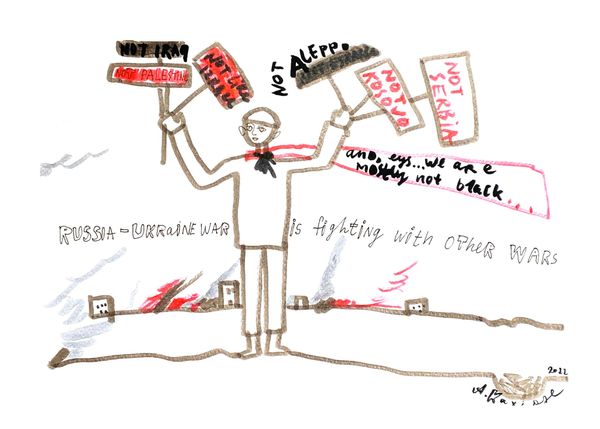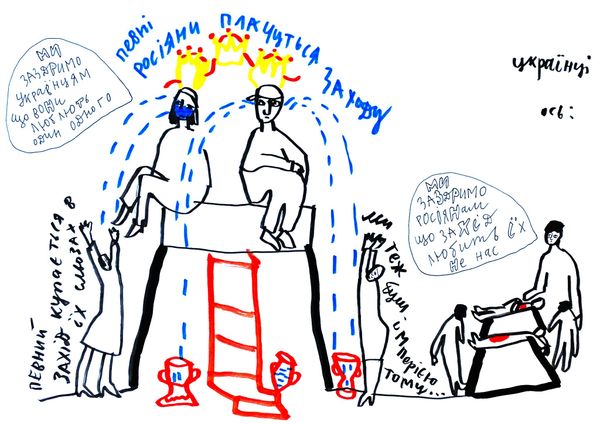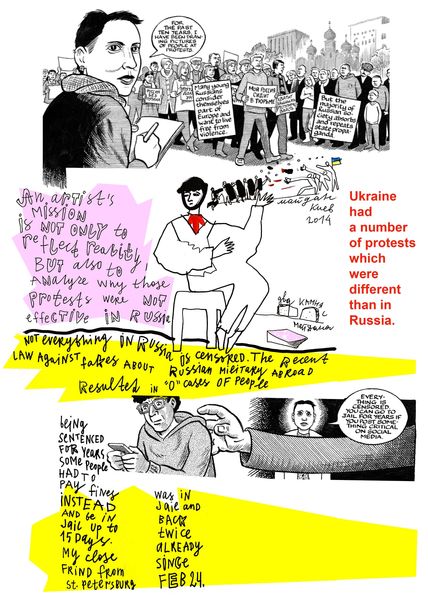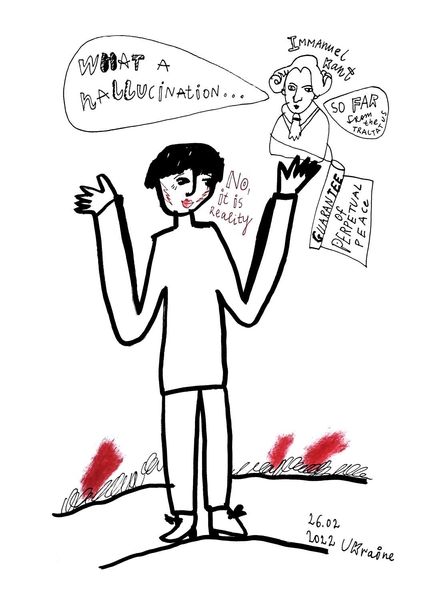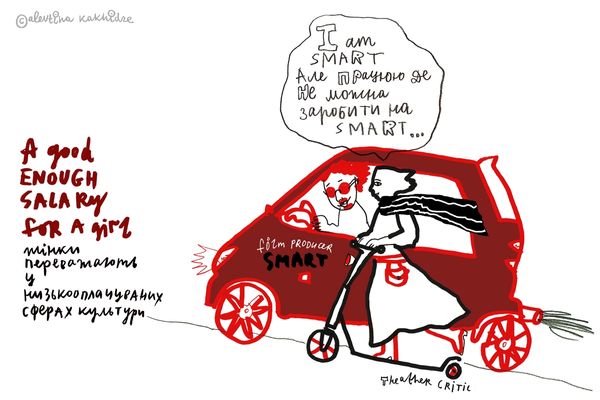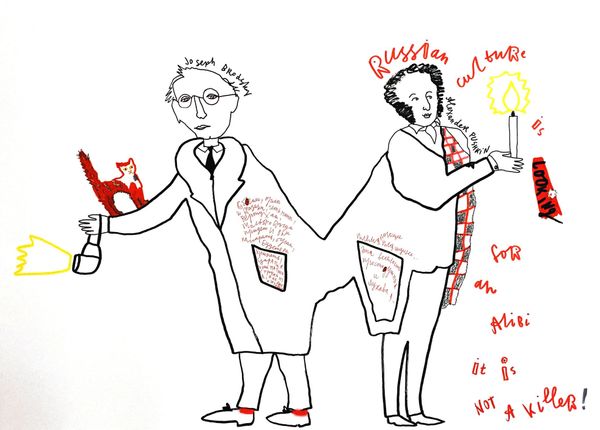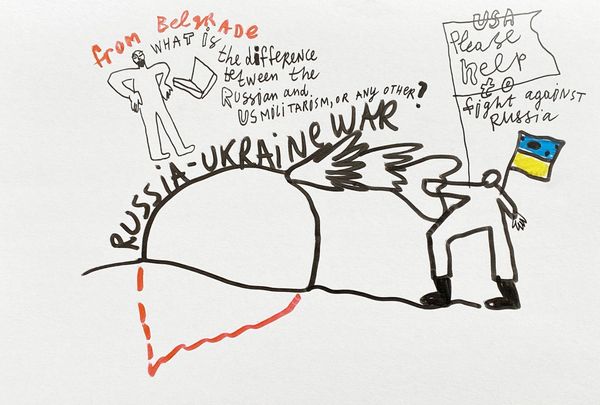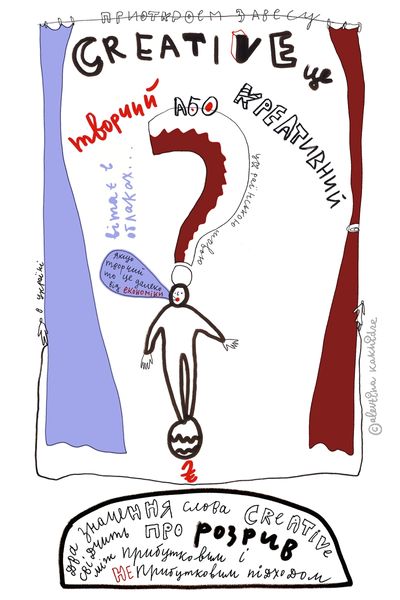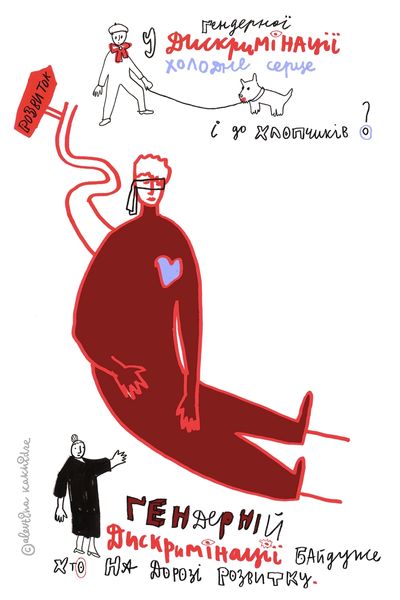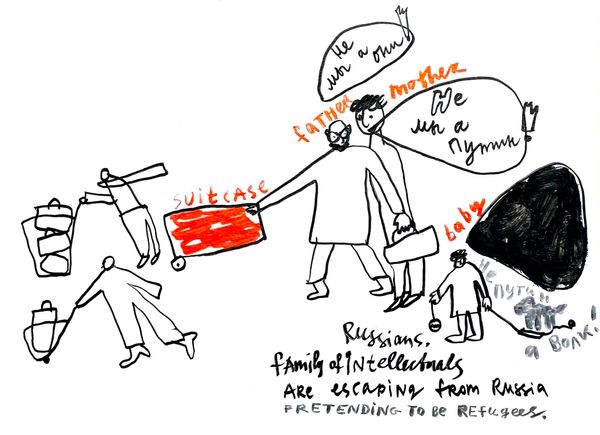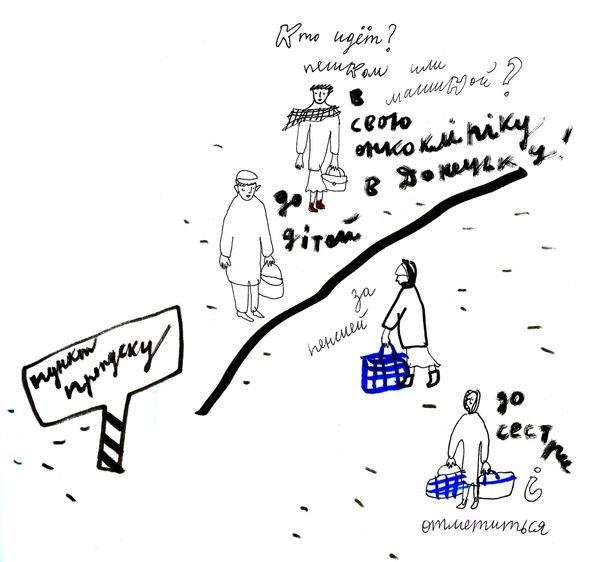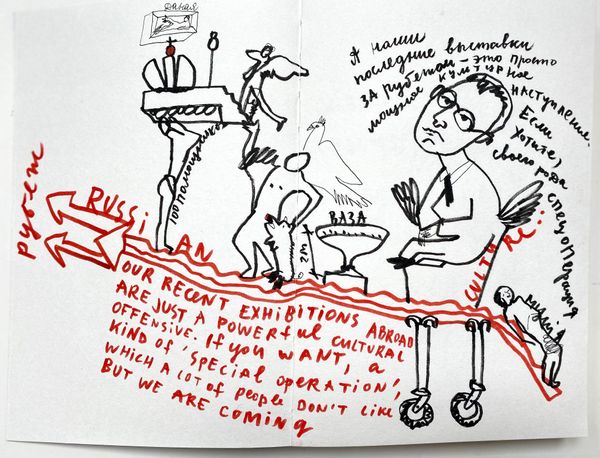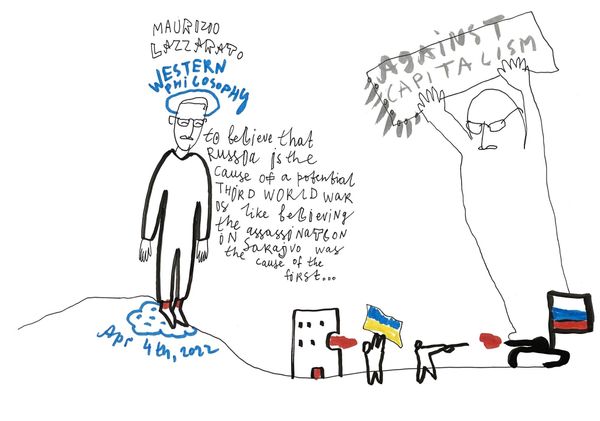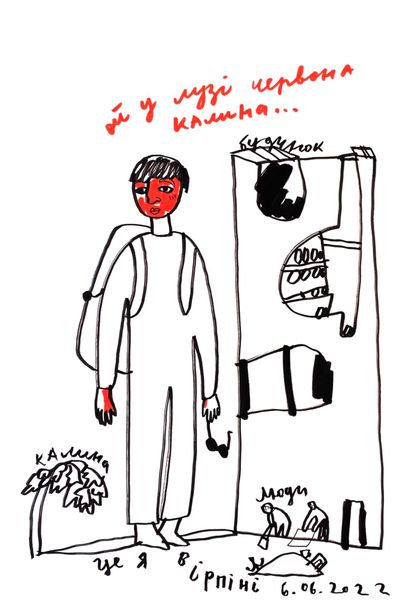
drawing, ink, pen
#
drawing
#
contemporary
#
narrative-art
#
ink
#
geometric
#
pen
Copyright: Alevtyna Kakhidze,Fair Use
Curator: Let’s turn our attention to a work of narrative art made with ink and pen, currently titled "Untitled" by Alevtyna Kakhidze. What's grabbing you initially? Editor: It feels like a quirky commentary, almost like a visual poem with a sting. I'm drawn to the stark simplicity—the red on white, the whimsical figures... It feels playful but the words seem serious. What's going on with the balloon figure up top? Curator: Ah, yes, the successful little person riding high above. Look closely—the Ukrainian script there reads “a successful little person exists but discrimination does not; it is simply a matter of skill". Editor: Yikes. That just hit me with a truckload of uncomfortable truths. And the path… the "labor market” sign... Is this some kind of skewed social landscape? The road leading toward this oddly unsettling figure… Curator: It seems the artist is creating visual shorthand for cultural critiques, juxtaposing an ideal—or a commonly held belief—with a conflicting reality on the ground. Then we have the phrase: “Gender Discrimination, Direct and Inevitable”. How are you reading that? Editor: Well, now I can't unsee this artwork as a map of inequalities. It's a clever composition. See that tiny figure at the bottom covering their eyes? Is she trying to ignore this gender-related discrimination the artist calls to attention? It is a stark metaphor for willful blindness. And that stern authority figure with the peculiar hat? Are we supposed to be intimidated by it? I am finding new nuances as I keep watching the composition. Curator: Yes! The "successful" person floating away contrasts powerfully with the “blindness” happening below—creating an intriguing tension with what lays in between: an accusation of a generalized state of affairs? The artist uses a very economic language! Editor: So much packed into such clean lines! It feels incredibly relevant—how many times do we choose to turn a blind eye rather than confront these issues directly? Curator: Indeed. It reminds us how symbols, language, and stark artistic choices can make inequalities—and the acts of overlooking them—plainly visible. It is really food for thought! Editor: Totally. I'll be pondering this one for a while! It's lighthearted yet provocative, like a bittersweet jab from a well-meaning friend.
Comments
No comments
Be the first to comment and join the conversation on the ultimate creative platform.
